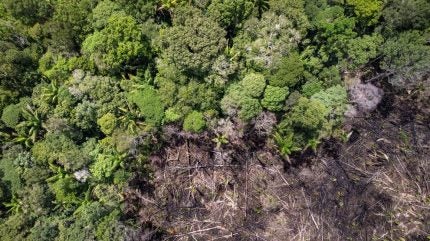
The Amazon soy moratorium will remain in place for the rest of the year after Brazil’s competition watchdog reportedly ruled the pact could continue.
CADE, Brazil’s anti-trust watchdog had wanted to suspend the agreement, citing concerns over companies sharing information.

Discover B2B Marketing That Performs
Combine business intelligence and editorial excellence to reach engaged professionals across 36 leading media platforms.
However, in late August, a judge in Brazil issued an injunction suspending CADE’s move to halt the moratorium, which was launched in 2006.
CADE’s initial move had angered environmental pressure groups, with one campaigner calling the decision “the biggest example of punching yourself in the face in conservation history”.
Brazil’s Ministry of Environment and Climate Change had also “expressed concern” at the watchdog’s stance.
However, earlier this week, CADE reportedly ruled the moratorium could stay until 31 December.

US Tariffs are shifting - will you react or anticipate?
Don’t let policy changes catch you off guard. Stay proactive with real-time data and expert analysis.
By GlobalDataAccording to Brazilian business daily Valor Econômico, the decision to allow the agreement to continue allows stakeholders to discuss possible changes.
“The decision does not definitively solve the matter within CADE but leaves room for negotiation and adjustments, with an opportunity to improve the agreement,” Brazilian law firm BGA posted on LinkedIn.
The soy moratorium was created to ensure the production of the ingredient in the Amazon region only occurs on existing agricultural land.
According to FAIRR, an organisation advising investors on ESG issues in the animal protein sector, soy-related deforestation has decreased while Amazonian soy production has risen by 400% since the moratorium was implemented, “showing that forest protection and agricultural expansion can be compatible”.





